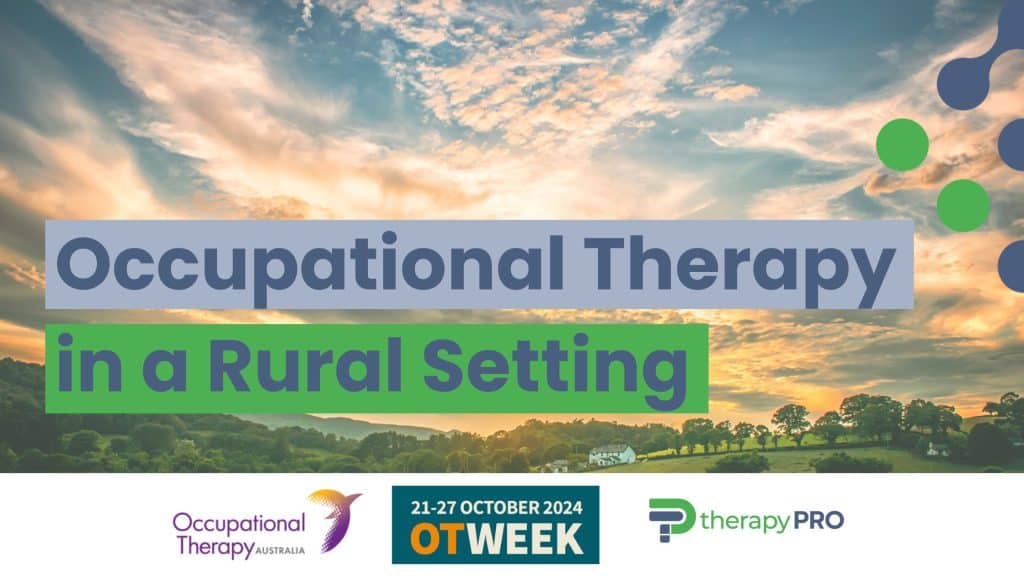Occupational Therapy in Rural Areas
Historically, occupational therapy in rural areas wasn’t always available, but in the 1960s, that all started to change.
As we continue our recognition of OT Week, today we’re looking at how OTs began expanding their reach beyond city hospitals.
By the 1960s, occupational therapy as a profession started to grow beyond hospitals and into rural areas, schools, and private practices. This meant that more families could access support close to home, and OTs could help people of all ages, from kids needing help at school to adults living with disabilities.
Occupational therapists worked with individuals and families to make everyday activities easier and more enjoyable, whether that meant learning new skills, adapting the environment, or finding creative solutions for daily challenges.
Occupational Therapy in Rural Areas: A Client Story
We approached one of our experienced OTs to share some of their experiences working in rural settings and how this shaped their practice today within a more urban environment. Hear what Jodie shared:
When I graduated, job opportunities in Queensland were scarce – you either found a role in the government or in private practice. So, I took a leap, packed my bags, and moved to Gladstone for a role in early intervention – my first experience working with kids.
I found myself traveling to Rockhampton, Biloela, and Bundaberg, providing support to families who often had little to no access to services. It was an incredible opportunity. I formed wonderful community connections and helped children who might otherwise go without support.
From Gladstone, I travelled to London for a few years, and upon my return, joined Therapy Pro and was based in Toowoomba. While in Toowoomba, I still undertook outreach, out west to Pittsworth and down to the Lockyer Valley and everywhere in between.
What Does OT Look Like In A Rural Setting?
One surprising thing I learned was just how creative you need to be when working rurally. There’s not always a Kmart just around the corner, and waiting for postage is a regular part of the job! Sometimes we’d use paddocks for sensory strategies when traditional resources weren’t available, and we’d have to consider the kids’ country lifestyle and routines, like looking after livestock before going to school.
These experiences have certainly shaped me as an OT, and I’ve brought many of those lessons from my early career with me into my roles with Therapy Pro.
One thing I’ve noticed is that in the regions, I had more time to get to know clients, families, and become ingrained the community, however now that I’m in a more urban setting, I really need to build trust and rapport right from the get-go. Building those connections needs to happen a lot faster, since families have access to so many services and options.
As I reflect on the changes I’ve seen in the OT profession as a whole, the growth and availability of more jobs stands out the most. When I graduated, there were very few roles in private practice, and the options for people with disabilities were often limited.
Today, the NDIS has created new opportunities for participants to achieve meaningful goals, which in turn has allowed therapists to focus on what matters most – delivering tailored, client-centred support that makes a lasting difference.
Follow Along For More Stories
In our next post, we’ll dive into how OTs started focusing more on mental health, working alongside psychologists and social workers to help people manage their mental wellbeing.
Stay tuned as we explore the impact from 1984 to 2004!
If you, your loved one, or a client requires OT services, reach out:




